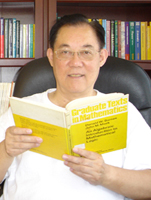
This talk will deal with the elementary theory of quantitative logic, which is divided into the following parts and sub-parts.
§1. Introduction
In this section we will give a brief introduction to the origin of quantitative logic, and will discuss some relationships between quantitative logic, possibility logic, and computational logic.
§2. Propositional logic and its completeness
§3. Several standard complete propositional logics:
Classical propositional logic, Lukasiewicz prepositional fuzzy logic and its n-valued extension, and R_0 propositional fuzzy logic and its n-valued extension.
§4. Elementary theory of quantitative logic
§4.1. Satisfiability degree of a logic formula
§
§
§4.2. Similarity degree of formulae
§4.3. Logic metric space (F(S), ρ)
§4.4. Approximate reasoning in (F(S), ρ)
§
§
§
§4.5.Consistency degree of a formal theory
§
§
§
§
§5. Results in quantitative predicate logic